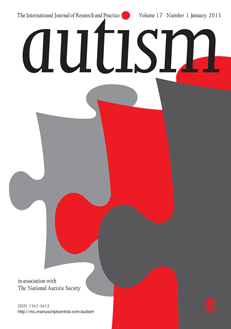
AUTISM
Scope & Guideline
Championing progress in the understanding of autism.
Introduction
Aims and Scopes
- Research on Autism Spectrum Disorder (ASD):
The journal focuses on empirical studies related to the diagnosis, treatment, and experiences of individuals with ASD, aiming to enhance understanding and improve interventions. - Inclusive Practices and Interventions:
A core area of the journal is the exploration of inclusive practices in education, employment, and social settings, emphasizing research that contributes to better outcomes for autistic individuals. - Comorbidity and Mental Health:
The publication addresses the complexities of comorbid conditions associated with autism, including mental health issues, and their implications for treatment and support. - Parental and Caregiver Perspectives:
Research highlighting the experiences and challenges faced by parents and caregivers of autistic children is a significant focus, providing insights into the support needs and service provisions. - Cultural and Societal Impacts:
The journal explores the cultural and societal dimensions of autism, including stigma, discrimination, and the diverse experiences of autistic individuals across different populations. - Methodological Innovations:
The journal encourages innovative methodologies, including participatory research and qualitative approaches, to capture the nuanced experiences of autistic individuals.
Trending and Emerging
- Trauma and Autism:
There is an increasing focus on the intersection of trauma and autism, exploring how traumatic experiences can impact the presentation of autism and vice versa, which is vital for developing appropriate support strategies. - Employment and Workplace Inclusion:
Research examining the experiences of autistic individuals in employment settings is gaining traction, emphasizing the need for effective employment support and inclusive practices. - Neurodiversity and Identity:
Emerging themes related to neurodiversity and the identity of autistic individuals are becoming more prominent, challenging traditional narratives and advocating for self-advocacy and empowerment. - Intersectionality in Autism Research:
There is a growing trend towards exploring how various factors such as gender, culture, and socioeconomic status intersect with autism, highlighting the diverse experiences of individuals across different backgrounds. - Technological Innovations in Interventions:
The journal is increasingly publishing studies on the use of technology in interventions for autism, including digital platforms and telehealth, reflecting the need for accessible and innovative approaches to support.
Declining or Waning
- Traditional Diagnostic Approaches:
There has been a noticeable reduction in studies solely focused on traditional diagnostic criteria for autism, as the field shifts towards understanding autism through a more holistic lens that considers individual experiences. - General Awareness Campaigns:
Research centered on broad awareness campaigns about autism appears to be waning, possibly due to a saturation of such initiatives and a shift towards more targeted interventions. - Single-Dimensional Studies:
The prevalence of studies that examine autism from a singular perspective, such as solely behavioral or educational outcomes, is decreasing in favor of multi-faceted approaches that incorporate social, emotional, and environmental factors. - Historical Perspectives:
There seems to be less emphasis on historical analyses of autism diagnosis and treatment, with current research focusing more on contemporary issues and future directions. - Focus on Young Children:
While early intervention remains important, there is a declining number of studies exclusively targeting very young children in favor of research that encompasses a broader age range, including adolescents and adults.
Similar Journals

Spanish Journal of Psychiatry and Mental Health
Connecting professionals through open access to cutting-edge studies.Welcome to the Spanish Journal of Psychiatry and Mental Health, a leading platform for innovative research and discourse in the fields of psychiatry and mental health. Published by ELSEVIER ESPANA SLU, this peer-reviewed journal serves as a critical resource for clinicians, researchers, and students dedicated to advancing understanding and treatment of mental health disorders. With a commendable ranking of #54 out of 567 in the Psychiatry and Mental Health category according to Scopus, it proudly positions itself in the 90th percentile, reinforcing its significance within the academic community. As an open-access journal, it aims to disseminate high-quality research to a global audience, promoting collaboration and knowledge sharing among mental health professionals. The journal's dynamic publication schedule, covering Converged Years from 2023 to 2024, ensures that it remains at the forefront of mental health scholarship. We invite you to explore the latest findings, engage with thought-provoking articles, and contribute to the ongoing dialogue in this vital discipline.
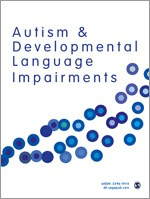
Autism & Developmental Language Impairments
Advancing knowledge in autism and language development.Autism & Developmental Language Impairments is a pioneering peer-reviewed journal published by SAGE Publications Inc that focuses on advancing the understanding of autism spectrum disorders and language impairments across the developmental spectrum. Since its inception in 2016, this open access journal has provided a platform for researchers, practitioners, and educators to disseminate innovative research findings, clinical practices, and theoretical insights, reaching a global audience. The journal is notably indexed in prestigious databases and has established its credibility with a remarkable Rank of Q2 in both Clinical Psychology and Developmental and Educational Psychology as of 2023, solidifying its importance in these vital fields. Based in the United Kingdom, it addresses crucial issues in mental health, reflecting a commitment to fostering advancements that seek to enhance the lives of individuals affected by developmental language impairments. As it converges into its next phase from 2016 to 2024, Autism & Developmental Language Impairments continues to play an essential role in bridging gaps between academia and practice, making it an invaluable resource for researchers, clinicians, and students dedicated to this critical area of study.
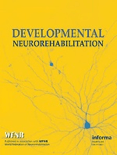
Developmental Neurorehabilitation
Exploring the frontiers of developmental neuroscience.Developmental Neurorehabilitation is an esteemed journal published by Taylor & Francis Inc, dedicated to advancing the field of developmental neuroscience and rehabilitation. With an ISSN of 1751-8423 and an E-ISSN of 1751-8431, this journal serves as a vital resource for researchers, clinicians, and students interested in innovative therapeutic approaches and rehabilitation techniques for children and adolescents. Since its inception in 1997, Developmental Neurorehabilitation has focused on disseminating high-quality research, contributing to a deeper understanding of recovery processes in developmental disorders, and facilitating interdisciplinary dialogue among professionals. With its recognition in Q2 and Q3 quartiles across prominent categories such as Pediatrics and Rehabilitation, it stands out as a pivotal publication in its field, boasting Scopus rankings that reflect its significant impact—ranked #53 in Rehabilitation and #139 in Pediatrics, among others. While maintaining a commitment to quality research, the journal does not currently offer open access but remains accessible through institutional subscriptions, further enriching the academic landscape with critical insights into rehabilitation methodologies for developmental challenges and promoting better clinical practices to improve patient outcomes.

Journal of the Korean Academy of Child and Adolescent Psychiatry
Fostering collaboration in mental health research.The Journal of the Korean Academy of Child and Adolescent Psychiatry (ISSN: 1225-729X; E-ISSN: 2233-9183) stands as a pivotal resource in the fields of child and adolescent mental health, contributing significantly to the dialogue on psychiatric practices and research in South Korea and beyond. Published by the KOREAN ACADEMY OF CHILD & ADOLESCENT PSYCHIATRY, this journal is recognized for its dedication to advancing the understanding of psychiatric disorders that affect children and adolescents, as evidenced by its Q3 ranking in both Pediatrics, Perinatology and Child Health and Psychiatry and Mental Health categories for 2023. Operated from Seoul, South Korea, the journal facilitates knowledge-sharing among researchers and practitioners, providing insights into clinical practices and innovative treatment methodologies. Although not openly accessible, the journal emphasizes quality over quantity in its selection of studies, making each article a valuable contribution to the field. As the journal continues to publish impactful research through 2024, it remains essential reading for those committed to the well-being of younger populations and their families.
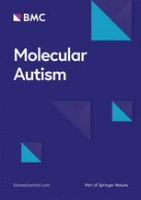
Molecular Autism
Exploring the genetic landscape of autism spectrum disorders.Molecular Autism, published by BMC in the United Kingdom, is a premier open-access journal dedicated to publishing high-quality research on the molecular and genetic factors contributing to autism spectrum disorders. Since its inception in 2010, the journal has established itself as a vital resource for researchers and clinicians, offering insights into the developmental biology, neuroscience, and psychiatric dimensions of autism. With an impressive impact factor and rankings placing it in the Q1 category across multiple relevant fields such as Developmental Biology, Developmental Neuroscience, Molecular Biology, and Psychiatry and Mental Health, it serves as a critical platform for the dissemination of innovative research and interdisciplinary collaboration. The journal encourages open dialogue through its commitment to making research freely accessible, thereby advancing knowledge and fostering advances in the understanding of autism. By bridging diverse disciplines and engaging with cutting-edge research, Molecular Autism aims to enhance our understanding of autism's complexities and inform future therapeutic approaches.
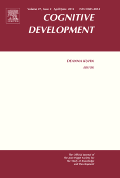
COGNITIVE DEVELOPMENT
Fostering Knowledge in Cognitive DevelopmentCognitive Development is a prestigious academic journal published by Elsevier Science Inc, focusing on the critical area of developmental and cognitive psychology. With an ISSN of 0885-2014 and an E-ISSN of 1879-226X, this journal serves as a vital platform for the dissemination of innovative research, theories, and methodologies from 1986 to the present, with the latest articles contributing to a comprehensive understanding of cognitive processes in children and adolescents. Positioned in the second quartile (Q2) of both the Developmental and Educational Psychology and Experimental and Cognitive Psychology categories, Cognitive Development holds an essential place in shaping contemporary psychological research, boasting robust Scopus rankings of #175/360 and #90/165 in its respective fields. Though not an open-access journal, it provides valuable insights and rigorous studies essential for researchers, professionals, and students engaged in the intricate processes of cognitive development. Whether you're looking to publish significant findings or simply stay updated on the latest advancements, Cognitive Development is an indispensable resource in the psychological community.
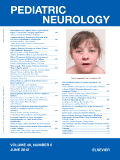
PEDIATRIC NEUROLOGY
Connecting Research with Clinical Excellence in Child NeurologyPediatric Neurology, a prestigious journal published by Elsevier Science Inc, is a leading resource in the field of child neurology and developmental neurosciences. With an impressive impact factor and categorization in the Q1 and Q2 quartiles across several relevant fields, including Pediatrics, Neurology, and Developmental Neuroscience, this journal is essential for researchers and healthcare professionals focused on pediatric neurological disorders. Since its inception in 1985, it has provided a platform for high-quality research, clinical studies, and reviews that drive advancements in diagnosis, treatment, and understanding of neurological conditions in children. Although the journal does not currently offer open access, it maintains a robust reputation in the academic community, bolstered by its prominent ranking in Scopus metrics. By engaging with the latest findings published in Pediatric Neurology, readers will gain vital insights that contribute to improving pediatric healthcare outcomes in neurology and neuroscience.
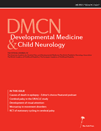
DEVELOPMENTAL MEDICINE AND CHILD NEUROLOGY
Enhancing child health outcomes with innovative insights.DEVELOPMENTAL MEDICINE AND CHILD NEUROLOGY, published by WILEY, is a premier journal dedicated to advancing knowledge in the fields of developmental neuroscience, clinical neurology, and pediatrics. With an impressive impact factor, this journal is recognized for its contributions, achieving Q1 ranking in both Pediatrics, Perinatology and Child Health, and Neurology (Clinical) sectors, as well as Q2 in Developmental Neuroscience. Since its inception in 1958, the journal has been at the forefront of disseminating vital research that informs clinical practice and enhances child health outcomes. Researchers and practitioners benefit from its high-quality, peer-reviewed articles that address critical issues in child neurology, underpinned by a robust Scopus ranking and a formidable percentile standing in relevant categories. While currently not an open-access journal, it remains a key resource for those dedicated to the study of child development, particularly at its intersection with neurological health. With a commitment to excellence, DEVELOPMENTAL MEDICINE AND CHILD NEUROLOGY is an essential read for anyone engaged in the care and research of pediatric populations.

Current Developmental Disorders Reports
Bridging research and practice in developmental disorders.Current Developmental Disorders Reports, published by SPRINGERNATURE, is a crucial resource for researchers, practitioners, and students in the fields of developmental psychology, psychiatry, and neuroscience. Since its inception in 2014, this journal has aimed to disseminate cutting-edge research on the multifaceted nature of developmental disorders, providing valuable insights into causation, diagnosis, and intervention strategies. With an E-ISSN of 2196-2987 and a notable standing in the Q3 quartile across multiple fields—developmental and educational psychology, developmental neuroscience, and psychiatry and mental health—this journal holds a significant position in the academic landscape. Researchers contributing to the journal benefit from its open access policies, stimulating knowledge sharing and dialogue within the scientific community. The journal’s commitment to advancing understanding in these critical areas of study is reflected in its rigorous publication standards and diverse range of articles, making it an essential read for anyone invested in the developments in mental health and developmental disorders.
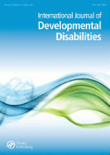
International Journal of Developmental Disabilities
Championing evidence-based practices in developmental disabilities.The International Journal of Developmental Disabilities, published by Taylor & Francis Ltd, serves as a premier platform for cutting-edge research in the field of developmental disabilities. With an ISSN of 2047-3869 and an E-ISSN of 2047-3877, this journal caters to a global academic audience, exploring relevant topics across Developmental and Educational Psychology and Psychiatry and Mental Health, as reflected in its 2023 Q3 quartile rankings. With a publication history dating back to 2012 and spanning to 2024, this journal is committed to advancing the understanding of developmental disorders and promoting evidence-based practices. Researchers, educators, and clinicians will find invaluable insights through open-access articles that address critical issues, therapeutic interventions, and policy discussions. Located in the United Kingdom at 2-4 Park Square, Milton Park, Abingdon, the International Journal of Developmental Disabilities stands as an essential resource for fostering academic dialogue and innovation in this vital area of study.